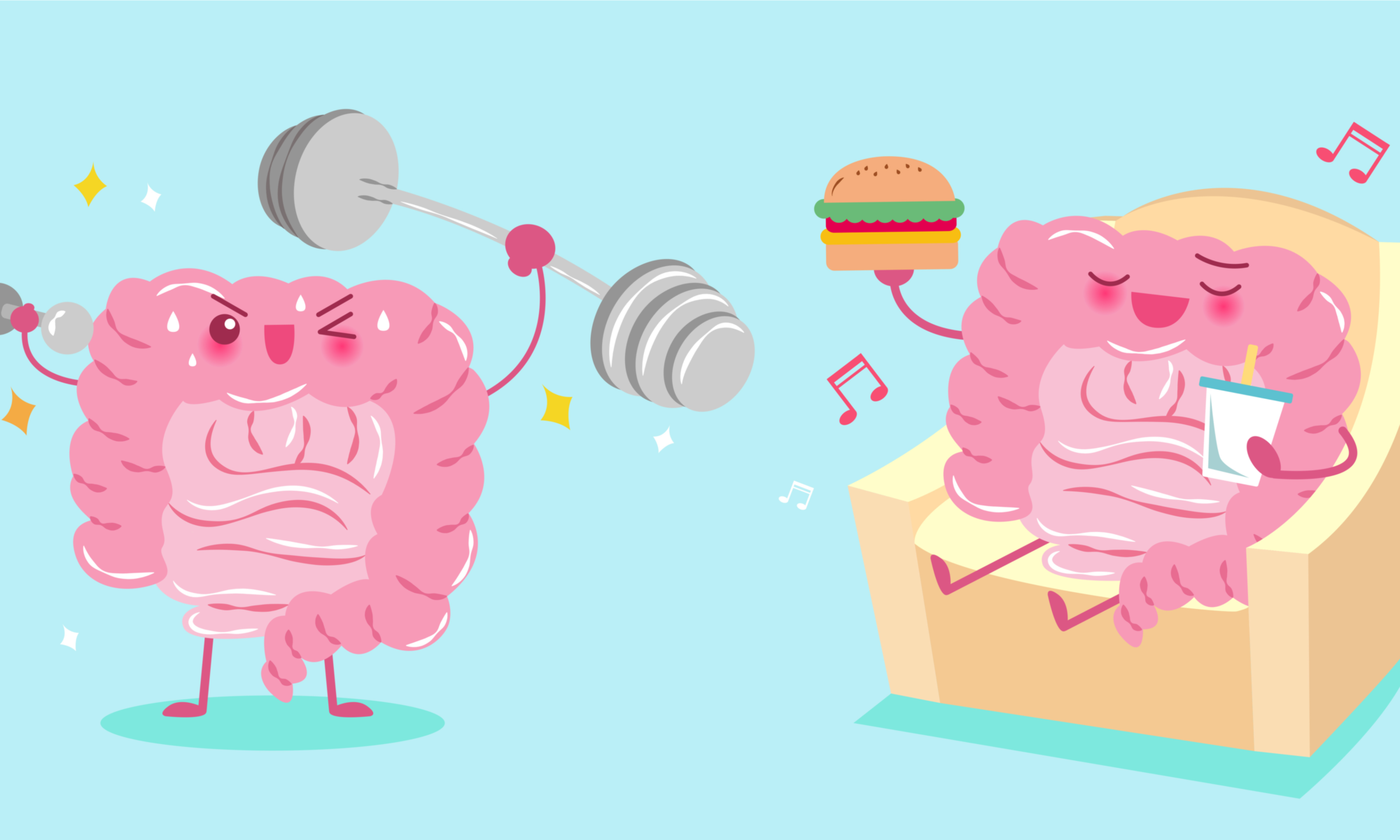Most of us are well aware of the benefits of exercise and movement for heart, mental, bone and muscle health. There is also no disputing its benefits in maintaining a healthy weight. What most of us are oblivious to, is the impact exercise can have on digestive health, in a positive or negative way. Especially if you suffer from some of the more common digestive health complaints that I see in clinic including, SIBO (small intestinal bacterial overgrowth), IBS or reflux. As well as the ever increasing IBD (Crohn’s and Ulcerative Colitis) and diverticulitis.
What are the BENEFITS of regular exercise for digestion?
- Your gut microbiome (the healthy guys that live in her gut), rely on good and consistent circulation to the stomach to perform their duties. Duties such as immune support, mood, metabolism, the creation of hormones and to regulate the digestion of food.
- Exercise also alters the diversity (variety) of our gut friends, to ensure the good ones outnumber and are stronger than the bad ones.
- Sure, we know about the importance of building the muscles that we can see from the outside. But the gut also has particularly important muscles along the digestive tract. These muscles need to be toned and strengthened by exercise to perform digestive functions.
- These same muscles are required to twist, churn, and push leftover food and metabolic waste through the digestive tract to be eliminated. Imagine if you did not have those important muscles you use to do number two! Moving makes sure your bowels also keep moving.
It is best to clear it with your doctor to make sure that the level of exercise is safe for you. Whatever you do, just get moving. Walking, jogging, riding, bushwalking, hiking, Pilates, yoga, gym classes are all great options and can be tailored to your fitness and mobility levels.
What about the flip side, how might my digestive health symptoms worsen with exercise?
- Exercising too quickly after food may increase reflux.
- Eating heavy foods before exercise may increase flatulence, bloating, reflux and abdominal discomfort. This, due to the body’s ability to switch off digestive function to activate its “fight or flight” response in exercise.
- While adequate exercise can be effective at reducing inflammation in the long term, over exercising is inflammatory and can stress the body. This causes an increase in a hormone called cortisol, which can lead to digestive complaints and fatigue.
- It is important to incorporate recovery days or low impact and gentle exercise into your regime to reduce inflammatory damage and digestive disturbances.
- High intensity exercise is great for keeping your heart in shape. However, overdoing it can contribute to diarrhea, especially in those susceptible to loose bowel motions (e.g. IBS). Why? When we run, the flow of blood is diverted to the legs and digestive organs are being thrown around creating disorder in the gut and bowels.
Thinking Holistically
So, while food can absolutely be a major contributing factor to digestive discomfort, other lifestyle factors such as exercise and sleep can also play an important role.
If you are newly taking up exercise, start slow, set small, achievable goals such as a 10 minute walk for the first week and slowly increase from there, but be CONSISTENT.
Or, enlist the support of an Exercise Physiologist or other exercise specialist along with your Nutritionist to build a holistic, supportive and motivating approach to your digestive health goals.
Happy and safe exercising!
Danielle x


